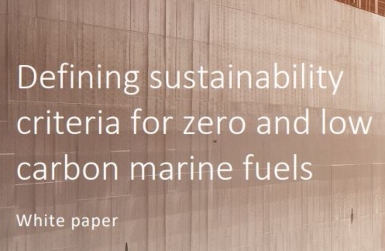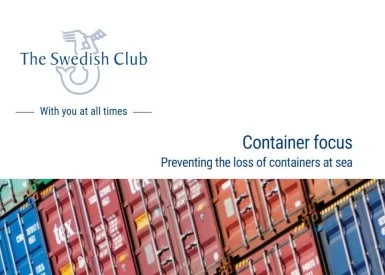
A new white paper from the Sustainable Shipping Initiative sets out 13 sustainability issues and principles surrounding low and zero carbon marine fuels which are under consideration as part of shipping’s energy transition.
The paper, defining sustainability criteria for zero and low carbon marine fuels, says attention must be paid to the lifecycle sustainability of bunker fuels, and its principles are intended to feed into the development of industry standards and third-party certification schemes ‘to assure and facilitate the selection of – and demand for – sustainable marine fuels’.
The sustainability principles and criteria are intended to be used by stakeholders across the shipping value chain ranging from shipowners; fuel producers and suppliers; shipping customers; regulators; and investors in zero emission shipping.
The white paper was developed in consultation with members of the Sustainable Shipping Initiative and industry stakeholders. In parallel, academic research conducted in partnership with Copenhagen Business School (CBS) Maritime through the Green Shipping Project will further scrutinise the work of the Sustainable Shipping Initiative and will provide an evidence base to inform a final set of principles and criteria to be released later this year.
Nicole Rencoret, Head of Partnerships and Development, Sustainable Shipping Initiative, commented: “Selecting zero and low carbon marine fuels is not just about price, availability and technical feasibility. They must also be sustainable over their entire lifecycle – including the operations around the production, transport, storage, handling and use of marine fuels.”
Katharine Palmer, Global Sustainability Manager, Lloyd’s Register, noted: “While it is important that zero-carbon vessels are commercially viable, technically feasible and safe, the sustainability of new fuels also needs to be equally considered. SSI’s new paper raises the importance of the sustainability of future zero-low carbon fuels from a lifecycle perspective – bearing in mind the impacts from primary feedstock, production processes, transport, storage and operational use, so the problem isn’t moved elsewhere in the supply chain.”
The Sustainable Shipping Initiative has launched an open consultation period for review of its white paper. Submissions can be made up to 31 March 2021.
Download the white paper: [download id=”77″]

